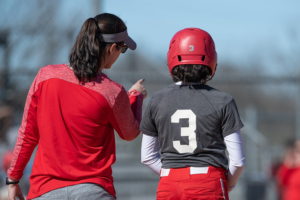It’s important to have clear expectations for your children starting at a young age. Having specific rules about chores, curfew and other expectations can make life easier for you and your child. It can also help your child gain confidence, grow and learn to be responsible. As your child gets older and learns to uphold expectations, some of these expectations may decrease—and others may be added.
It’s also crucial to have set rewards and consequences when expectations are met or not met. The best way to do this is to sit down with your child and come up with reasonable expectations, as well as reasonable rewards and consequences.
What does a Plan for Expectations, Rewards and Consequences Look Like?
Here are a couple examples of how this might look for you and your child, how to put the plan in place, and how having a plan in advance can help both you and your child.
Example A – Consequences
You and your child create a plan related to curfew. You both agree:
· Curfew is 10 p.m. on weeknights
· If they are late getting home, they will lose their phone for three days
A few weeks after establishing these rules and expectations, your child doesn’t get home until after 11 p.m. In the moment, it can be easy to become upset, but having a set plan beforehand helps immensely.
Instead of saying “you’re grounded, give me your phone,” you will be able to say “because you didn’t get home by curfew, you will lose your phone for three days.” Since this was agreed to in advance, you and your child will already be aware of the consequence of staying out later. This way you’re not put on the spot trying to determine a consequence in the heat of the moment, and your child is not caught off guard by the consequence since they participated in creating it.
Example B – Rewards
Setting expectations can also work to reward your child. If you have younger kids, you could have a list of chores and expectations that they can do to gain rewards. When they meet a certain number of chores/expectations a day, they might be able to earn one hour of screen time. Another option might be that they aren’t allowed to have screen time until they complete a certain number of tasks.
Tips for Setting Expectations & Consequences/Rewards
Here’s a list of tips to follow when setting expectations and consequences/rewards.
- Be clear and concise
- Be reasonable
- Don’t take away things for an undetermined amount of time
- Don’t say “you won’t get your phone back until you learn to respect me” as that is a very subjective measure and difficult to quantify for both you and your child
- Having a set amount of days is the easiest way to have a consistent and clear expectation
- What works for one child may not work for another; plans should be individualized for each child
- Write down or print the list of expectations and consequences/rewards, and keep them somewhere visible for the family
- This will help your child remember what is expected, as well as know what will happen if they decide to stay out later than curfew or fail to do chores
- Make sure the list is manageable for you and your child; having too many expectations will be overwhelming
- Be consistent – if you sometimes give the reward or consequence and sometimes don’t, this will create confusion for your child
Want Ideas for Reasonable Expectations?
There are several online resources available to help! You can search reasonable expectations by age and developmental level, as well as advice from other parents. Just remember each child is unique, and what works for others may not work for your child.
Here’s one resource you may want to check out: The Ultimate List of Age-Appropriate Chores.
If your child sees a therapist, they will also be able to help you and your child come up with a plan.
Set Expectations & Help Your Child Grow
It’s never too soon or too late to set expectations to help your child grow and become responsible, and to celebrate your child’s achievements as they take on responsibilities. The key is to work together, set reasonable expectations and consistently follow through.
Also, remember life’s a work in progress! There may be times when you need to adjust expectations or set new expectations, and this is perfectly fine.

Arianna Shay, PA-C
Arianna Shay, PA-C is a physician assistant with Bryan Heartland Psychiatry. She graduated from Union College with a masters degree of physician assistant studies in 2019. She has worked in child and adolescent psychiatry for over two years, and is part of a wonderful inpatient team of providers, therapists, social workers, nurses and mental health technicians. Arianna works with children, teens, parents and families.









